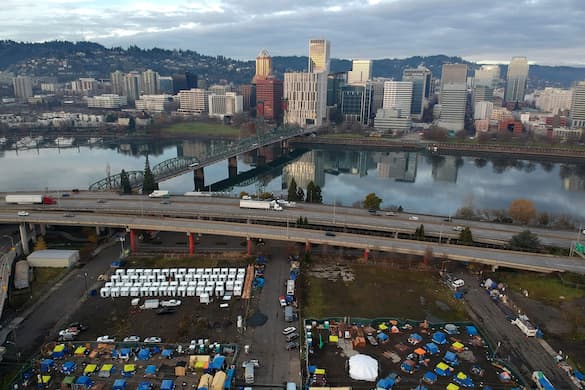Voters in 13 Oregon Counties Approve ‘Greater Idaho’ Measure Seeking to Secede From Liberal-Run State
‘We want an economy that is not held back by Oregon regulations and taxes, including environmental regulations,’ the people behind the movement say.

Thirteen counties in Oregon have voted in favor of measures to begin negotiations on seceding from the state and joining neighboring Idaho.
The latest county to endorse the initiative was Crook County, where voters approved the “Greater Idaho Measure” on Tuesday. The proposal aims to move Oregon’s border approximately 200 miles to the west, which would place 14 counties and several partial counties under Idaho’s jurisdiction.
“The Oregon/Idaho line was established 163 years ago and is now outdated,” the movement’s website says. “It makes no sense in its current location because it doesn’t match the location of the cultural divide in Oregon.”
The organizers of the Greater Idaho movement argue that residents in eastern Oregon feel increasingly alienated by the state’s progressive policies, which they say contribute to high crime rates. Their website says becoming part of Idaho would offer lower taxes and improved representation and governance for the communities.
“We want an economy that is not held back by Oregon regulations and taxes, including environmental regulations,” Greater Idaho executive director Matt McCaw, said, according to the Daily Mail. “We’ll still have federal and Idaho regulations, and that’s plenty. Idaho knows how to respect rural counties and their livelihoods.”
In Crook County, Measure 7-86 passed with 53 percent of the vote, marking another victory for the Greater Idaho campaign. But the vote is not legally binding. Instead, it merely indicates that residents want their state and federal representatives to consider starting negotiations on the matter.
“We call on the governor, speaker of the House, and Senate president to sit down with us and discuss next steps towards changing governance for eastern Oregonians, as well as for the legislature to begin holding hearings on what a potential border change will look like,” Mr. McCaw said.

